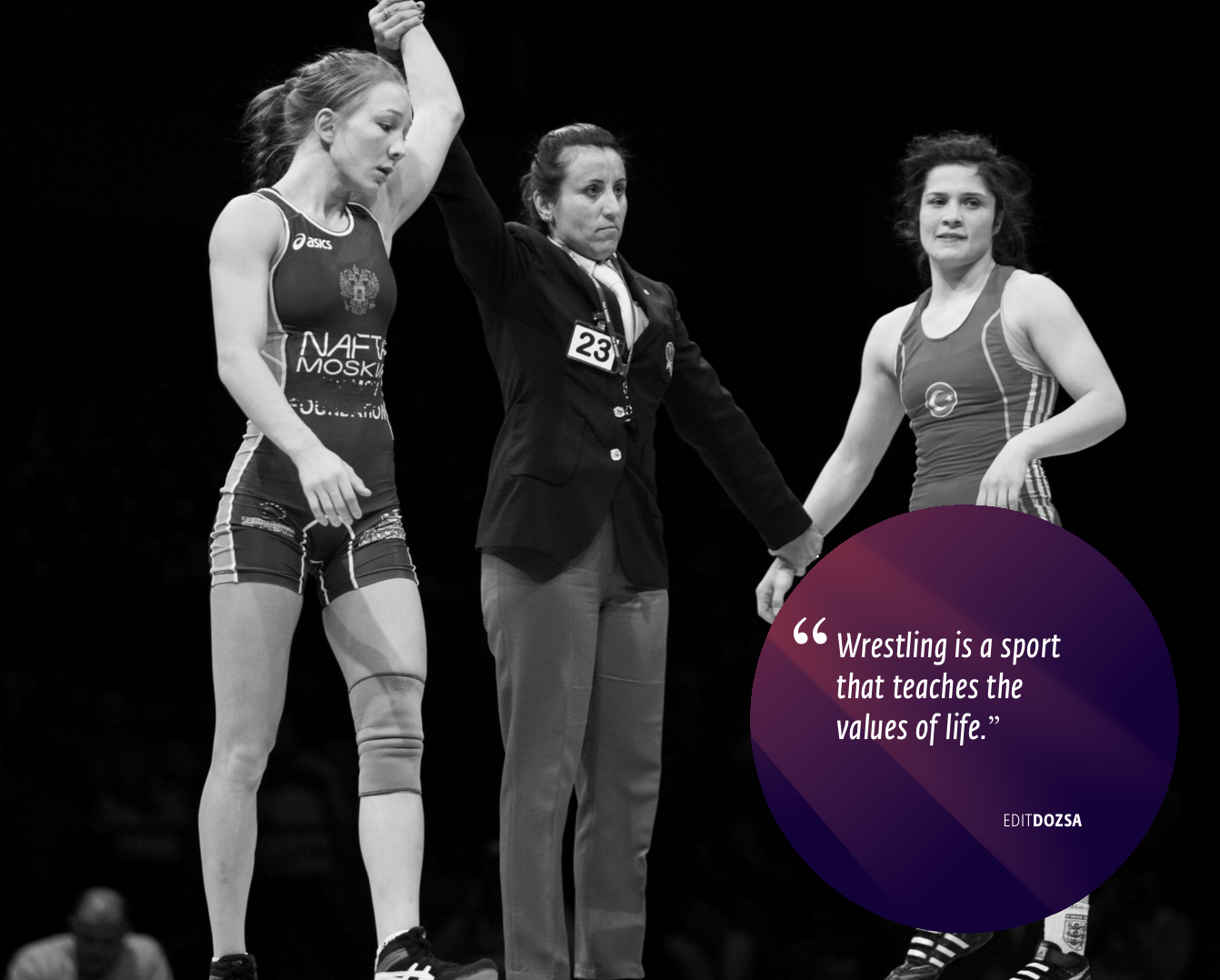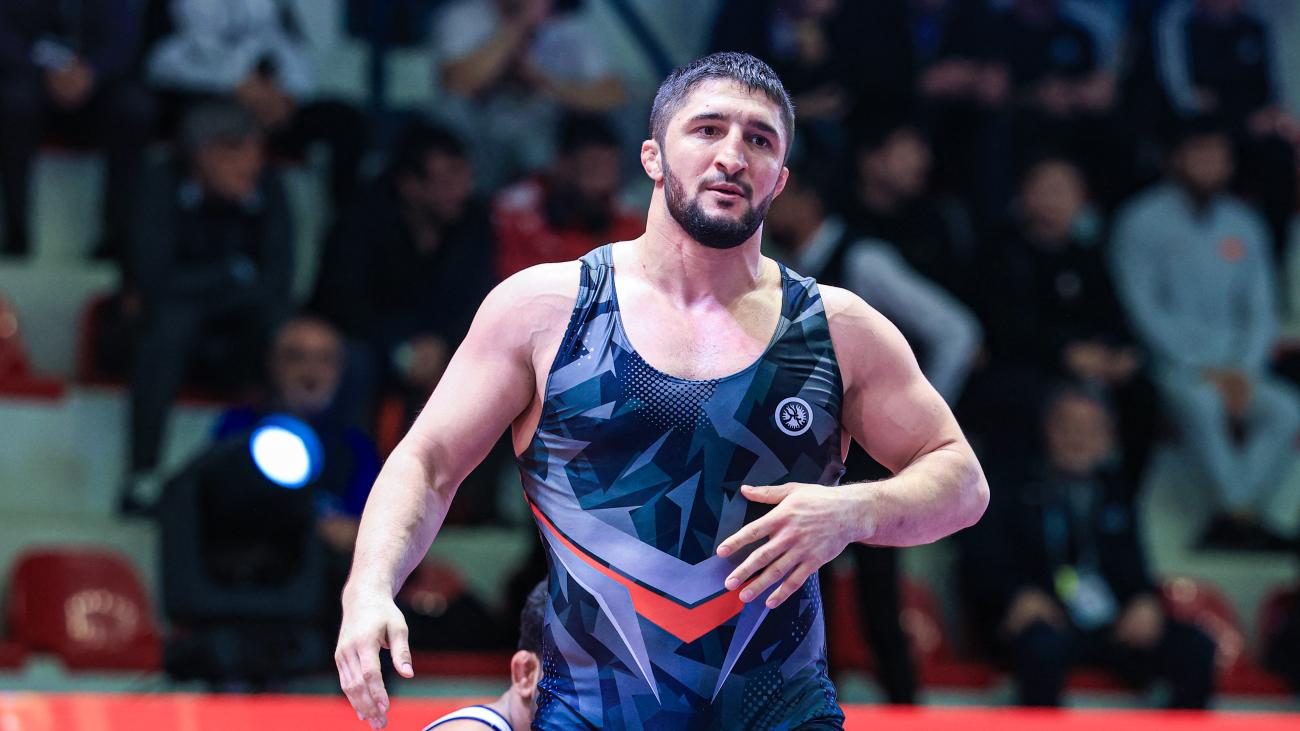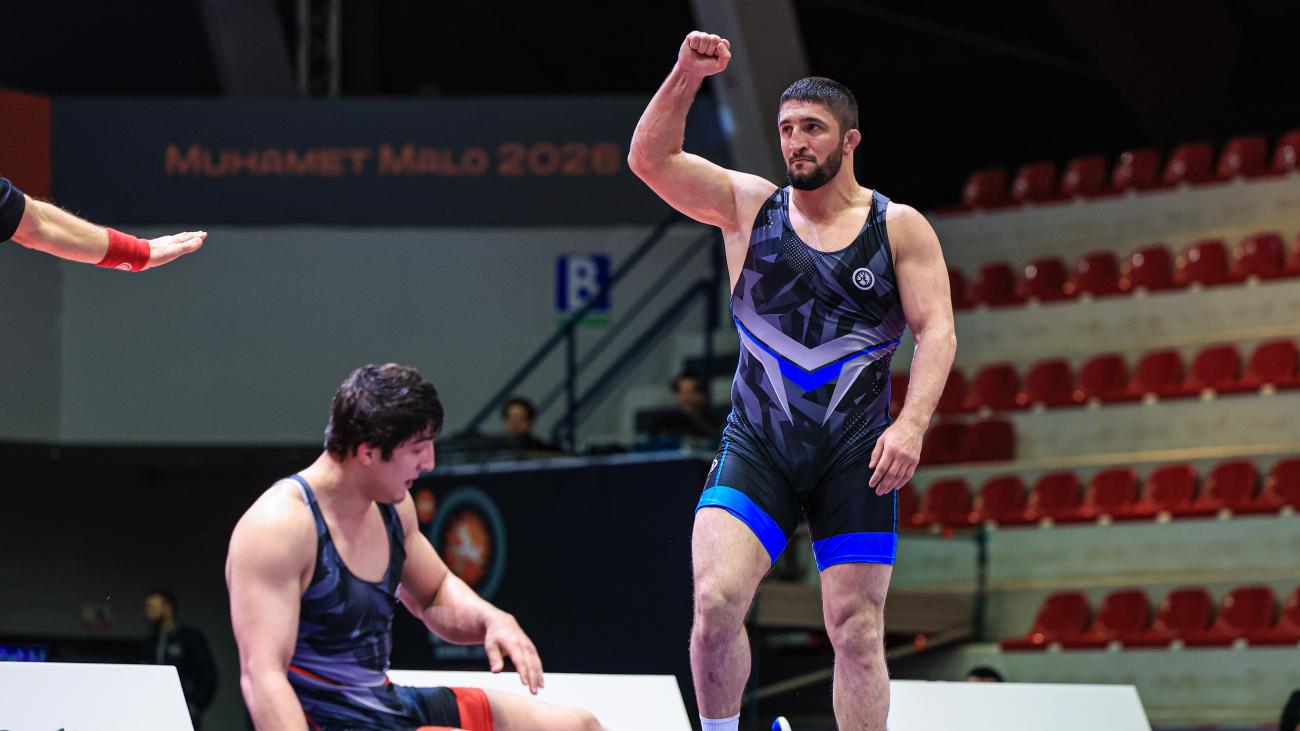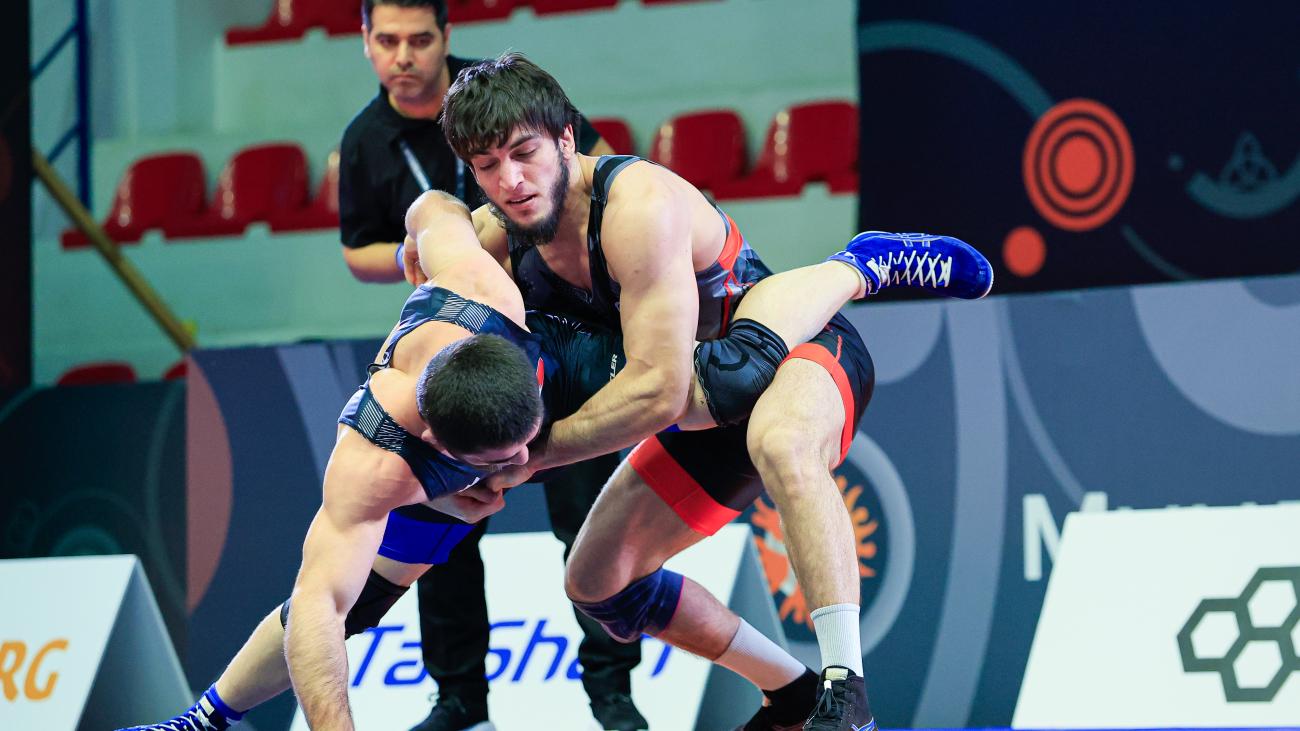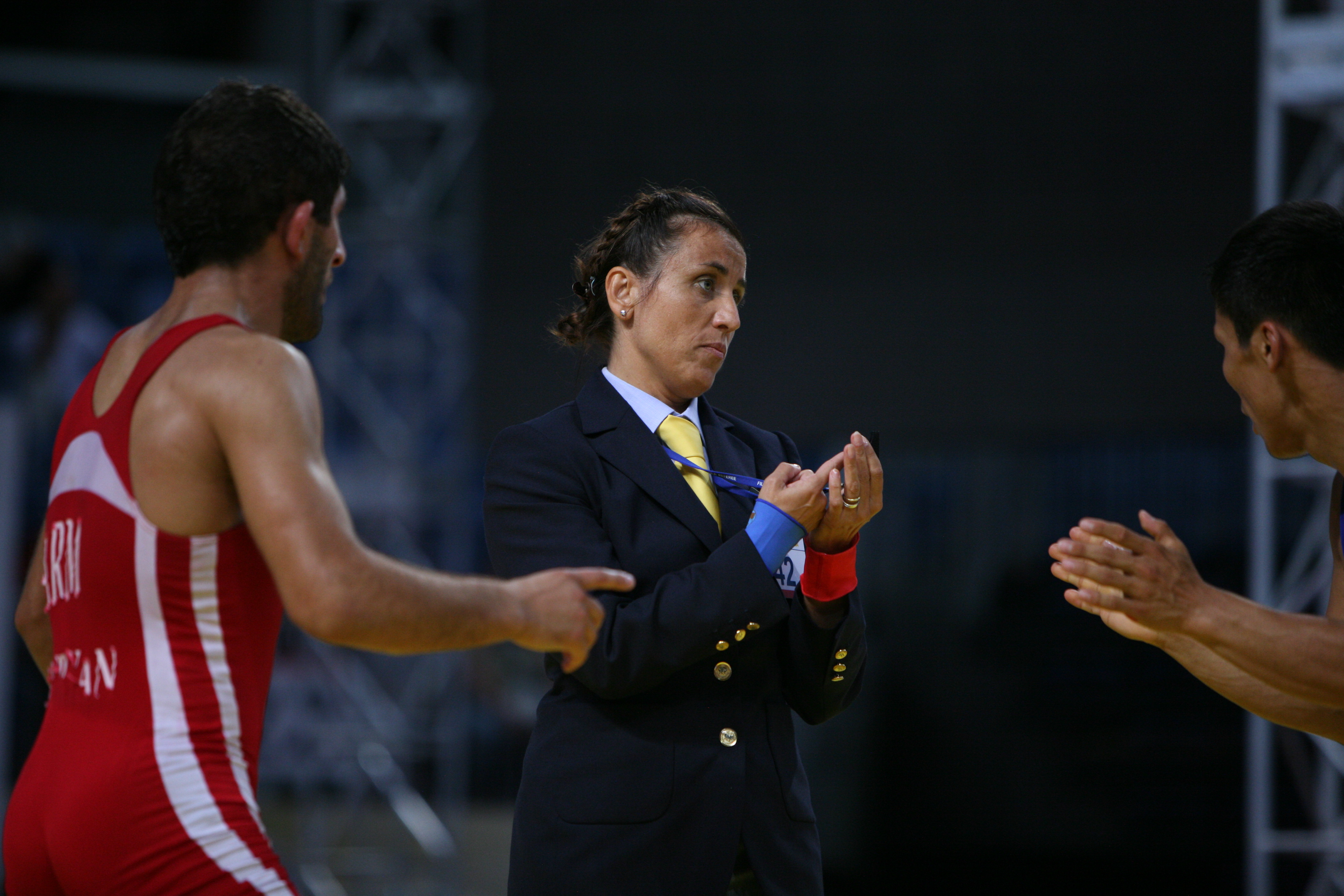
How and when did you get started in wrestling?
I started in 1985 back in Hungary. Some of my friends, boys, were wrestlers and they were always telling me I should come with them and try it out. When I saw what wrestling had to offer as a sport I was really amazed. I loved the physicality of it, the discipline of the training. I could see my strength growing as I trained. When I started I was the only girl, at about 15 years old. Eventually in 2001 Hungary was hosting the European Championships and decided to create a women’s team and we took our chance.
How do people react when you tell them you are a wrestler?
Back then people would be surprised. They told me I must be crazy! How can you train or compete with boys? I didn’t tell my parents at the time. I’d just tell them I was going to spend time with friends. In 2001 I sat my Mom down in front of the TV and asked her to watch wrestling with me. She quickly realised that it was me she was seeing on the screen! It was a big shock for my parents my sister.
What’s your best memory of wrestling?
It’s pretty hard to beat that first championship appearance at home in Hungary. I was so proud. Wrestling has been my whole life and I am still collecting memories.
I got into coaching in 2002 after retiring from competition. As a young girl I never really had a proper coach and I wanted to give something back. Even now I am working fulltime as a coach in Genoa in a club my husband and I set up where I am also the club’s Vice President.
When I retired I understood how my experience as a wrestler could help me as a coach, but even more in the role of a referee and my career took me in that direction. First with my national federation in Hungary. They asked me to go on a referees course and I loved it. I think referees have a big role to play in creating good conditions for the athletes to have a good match and I always keep this in mind on the mat.
Both of my children wrestle now. We are a big wrestling family. My daughter Dalma and son Aaron have grown up around wrestling. They are juniors now but have been wrestling all their life. Dalma used to challenge her little brother all the time. Eventually he got tired of it and told me “One day I am going to get her!”! They still train and wrestler together now. My son-in-law is a talented wrestler too. So you see, wrestling is my life and creates new memories for me every day.
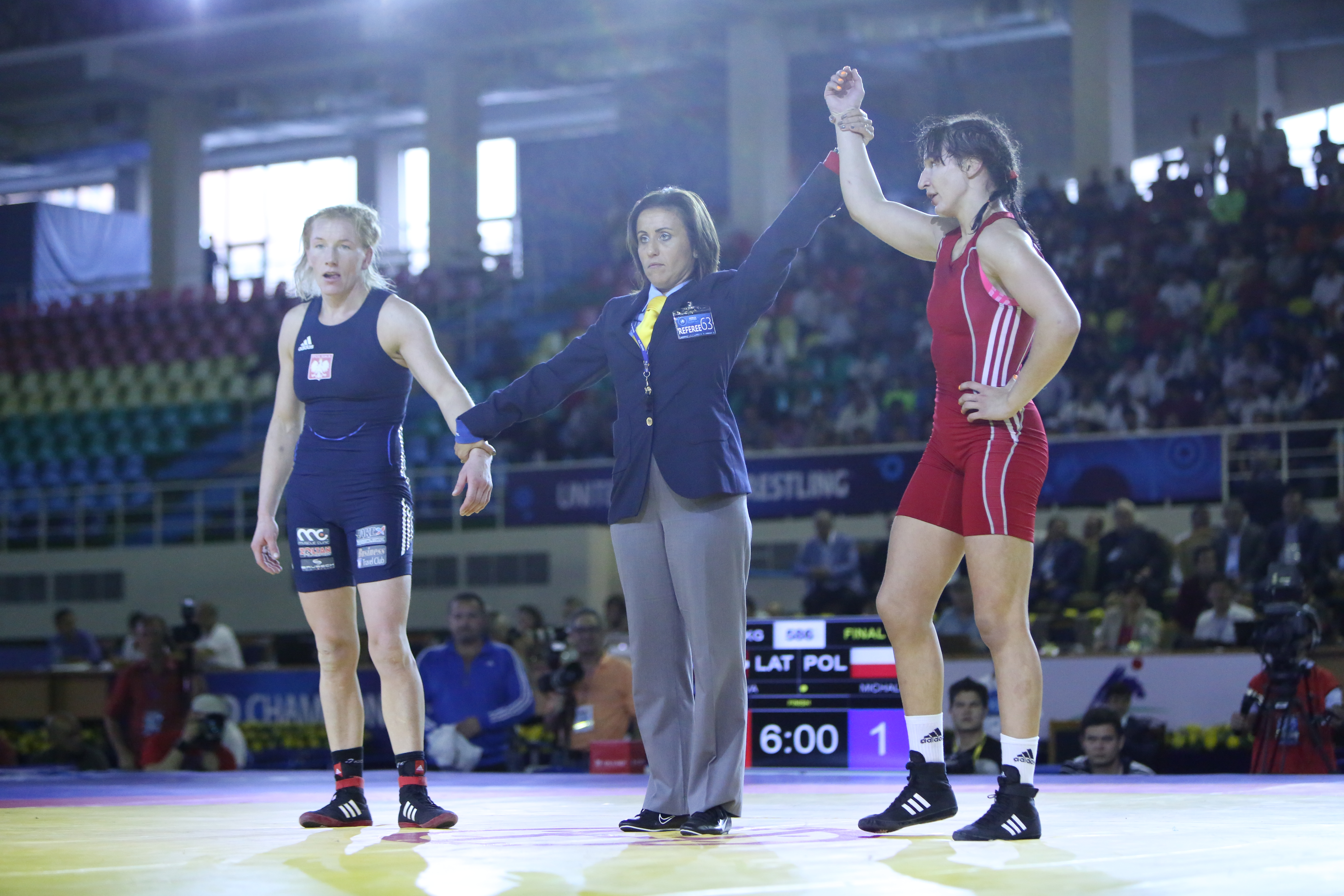
Who has been the biggest inspiration during your life in wrestling?
I don’t want this to come across the wrong way, but I have to give myself this credit! Don’t get me wrong, there were many people throughout my career who helped me, but my biggest moment was to compete in a major championship in Hungary in front of a home crowd and show them that women can wrestle. Not only can we wrestle, but we are good at it! This really confirmed the faith I had in myself to succeed. I never gave up, no matter what people said, and this was the reward.
What’s your favorite thing about wrestling?
My favorite thing is that wrestling teaches you real skills for life. It teaches you discipline and respect -- for your opponent and for your body. It also gives you practical benefits like strength and power. The feeling of confidence you gain from being strong and able to defend yourself is something really important that I think a lot of girls could benefit from today.
What does being part of the Olympic family mean for women’s wrestling?
If I had known that in 2004 there would be a chance to wrestle at the Olympic Games I would have tried to hang on a little longer! It’s the ultimate for any sportsperson and I know that now my daughter or son can have this dream. It’s a great stage for us to show the world what our sport can offer.
What advice would you give to girls who want to start wrestling today?
Wrestling is not easy. You have to train hard and make a lot of sacrifices, but they are all worth it. Everything you put into wrestling you will have for the rest of your life. I see now that parents in our club give their daughters to wrestling because of the values it teaches, but also the health benefits. When I was growing up in Hungry physical education was really part of our education but now it’s not the case. I think parents should be aware of the benefits as much as the children.
What are your hopes for the future of women’s wrestling?
I really hope that we can increase the number of girls and women participating in our sport. We have a lot of work to do in terms of promotion and marketing of our sport, but I think the Super 8 is a great step in the right direction. We need to let the world know that we are here and share the positive messages our sport has to offer.
